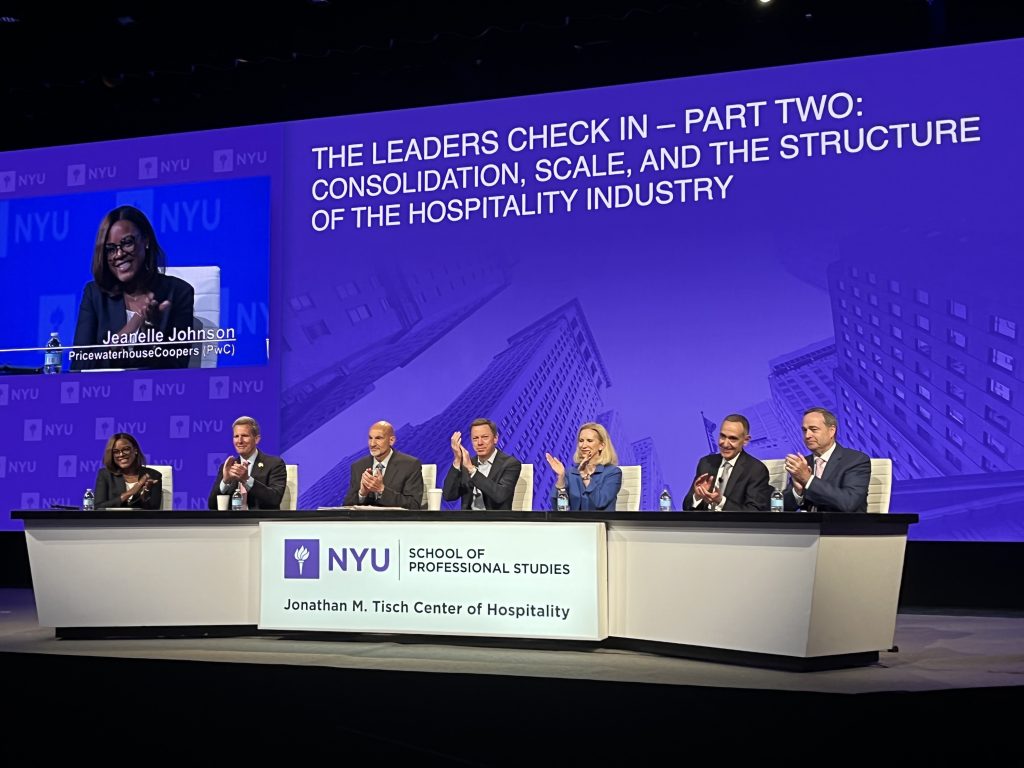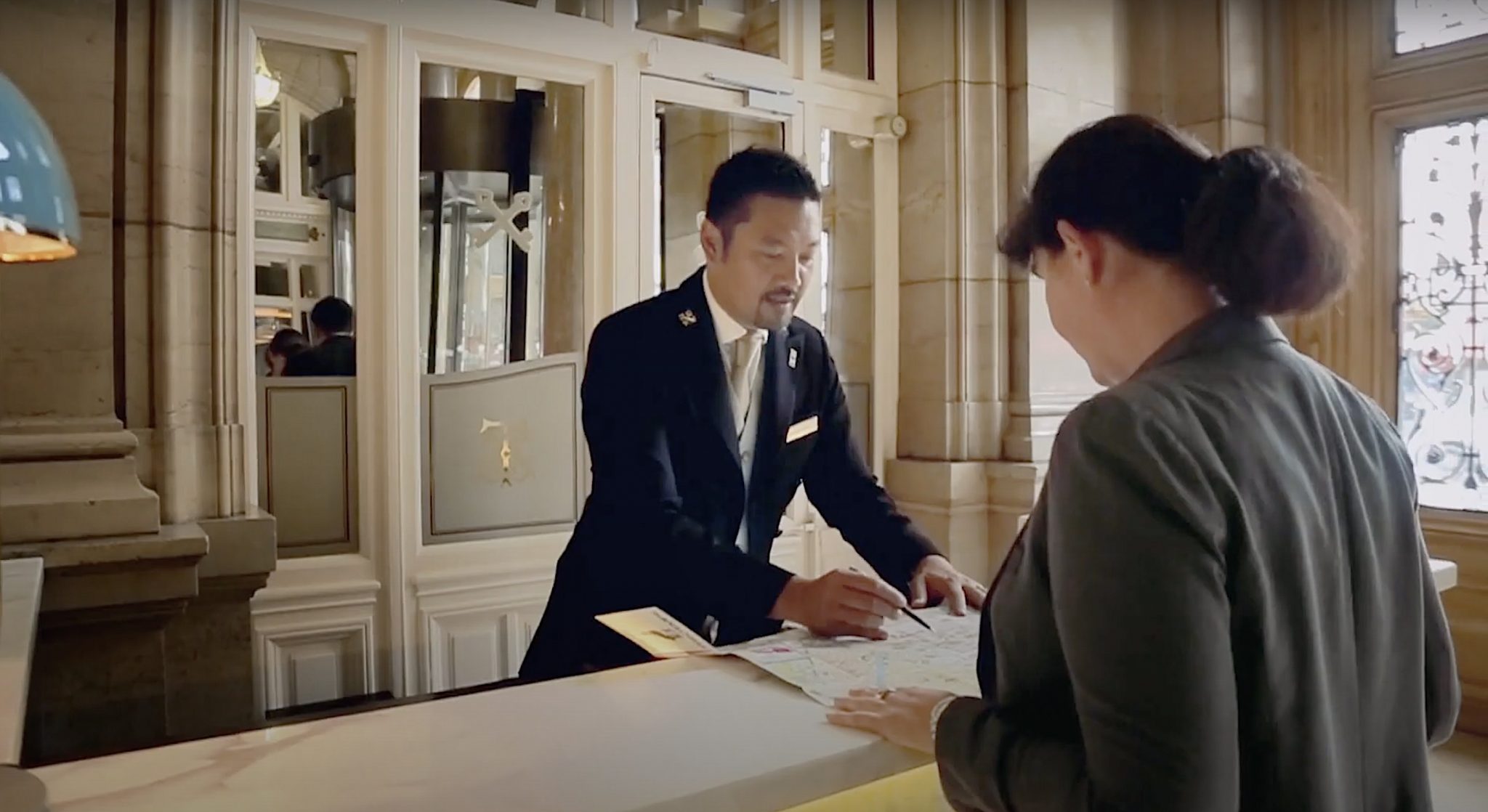Skift Take
Although hotel CEOs did their best to be optimistic, the industry is plagued by post-pandemic issues never seen before.
The hotel industry is at times taking a creative approach to the nagging labor shortage in the face of pent-up demand, and the possibility of a looming recession.
The crunch occurs even as U.S. hotels are expected to employ 2.19 million people – or 93 percent of pre-pandemic levels — as demand surges, according to the American Hotel & Lodging Association.
One of the ways Remington Hotels contends with the labor issue, said Sloan Dean, CEO and president, is by creating a new pay model. “We have people working 20-hour work weeks filling the gap,” he said.
Other hotel execs, who attended the 44th Annual NYU International Hospitality Industry Investment Conference in New York Tuesday, also stressed the importance of attracting Generation Z to the industry.
The Margaritaville, Florida lodging industry works with colleges to train hospitality students and many become full-time employees in the hotel industry. “It’s harder to get into than Harvard,” John Cohlan, CEO of Margaritaville, said.
Meanwhile, the industry is also tapping into those not on a college track. “At Marriott, there are many general managers who started as hourly workers. That makes me so proud,” said Stephanie Linnartz, president of Marriott International.

Remote Work Impacting the Industry
Remote work is a byproduct of the pandemic that is here to stay, many people believe. To accommodate remote workers, Sonesta is creating more informal meeting spaces, said John Murray, president and CEO, of Sonesta International Hotels.
Jeff Wagoner, president and CEO of Outrigger Hospitality Group, reported that Hawaii will restart its successful remote worker residency program. And while Airbnbs remain an issue of contention in Hawaii, the local government has instituted a 90-day minimum stay to eliminate some competition for hotel companies like Outrigger.
Sonesta’s Murray believes some of Airbnb’s success can be attributed to the hotel industry letting its guard down, and the company has thus focused its attention on suite properties. For example, in New York City, the company has just invested in four boutique and lifestyle hotels that include 60 percent suites in an attempt to recapture this lucrative market.
Higher Costs
While average daily rates have risen in the U.S., according to STR and Tourism Economics, during the conference, increased costs continue to challenge the industry. Murray and other hotel execs said not only do goods cost more, but renovations and outfitting hotels take longer.
Technology is another critical theme, particularly as to how it can help ease labor issues and streamline business. Kevin Jacobs, CFO and president of global development, Hilton, stressed the importance of “phygital” technology that blends digital experiences with physical ones. “These offerings will help make the customer’s experience better,” he said.
Elie Maalouf, CEO, Americas, IHG Hotels & Resorts, posed a rhetorical question. “Is technology really making us more efficient, or making us work harder?”
“There is no period in our industry where brands worked together more than during Covid, educating consumers as to why it’s safe to stay in our brands, Geoff Ballotti, president and CEO, Wyndham Hotels & Resorts, said. That same collaborative spirit is needed on the issue of sustainability, and to this end Wyndham will require all its properties to track its sustainability standards by the end of the year.
Five Rs
There is no doubt that a possible recession is on the radar of most hotel chains. But it should not be paralyzing, Ballotti said. “We got through a pandemic the past two years. We can get through anything,” he said.
Hilton’s Jacobs added, “News flash – there is always a recession coming.”
A growing middle class that has added to their savings during the pandemic will help counterbalance a recession. “What do they do when they have the means?” he asked. “They travel.”
Patrick Pacious, president and CEO of Choice Hotels International, has his eye on the “four r trends.”
They are remote workers, rising wages, increased retirement, and more road trips.
Larry Cuculic, president and CEO of Best Western Hotels & Resorts, added a fifth. “Restore your reserves,” he said. “We don’t know what the future holds. (You) can be optimistic but must also be realistic and build up your reserves.”
Have a confidential tip for Skift? Get in touch
Tags: best western, future of lodging, hilton, hospitality, hotel technology, labor, marriott, sonesta, training, wyndham
